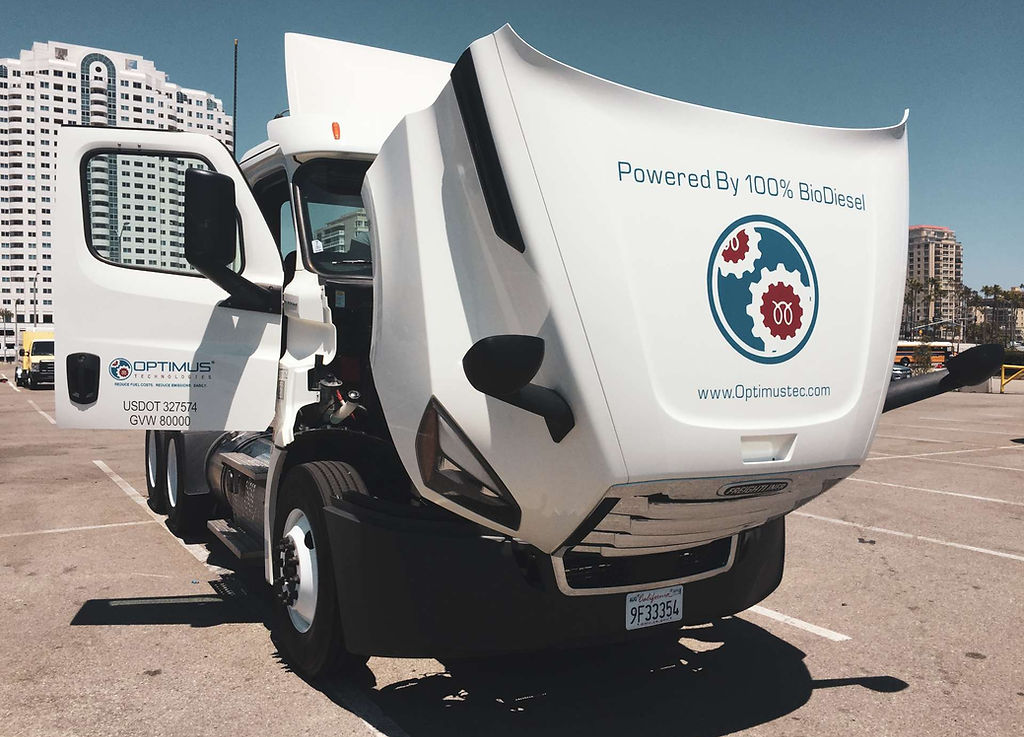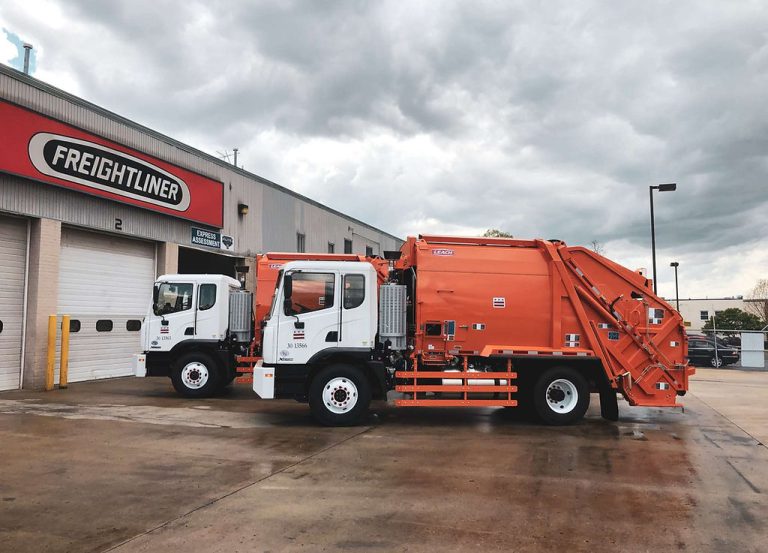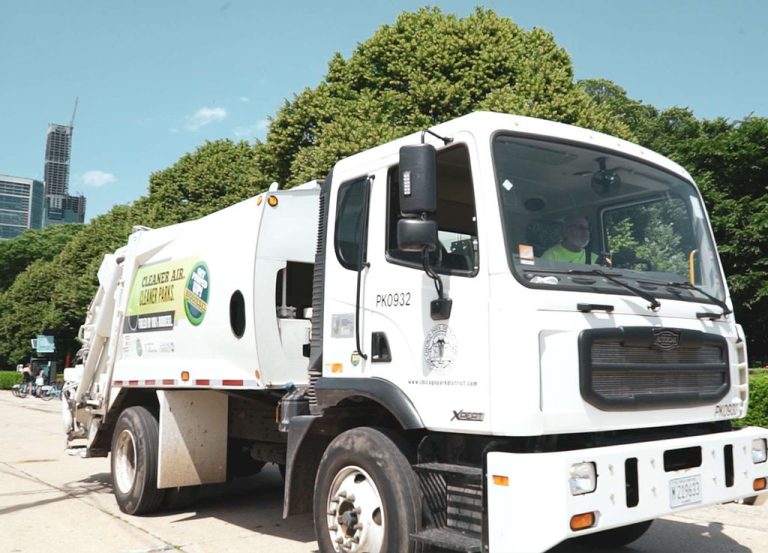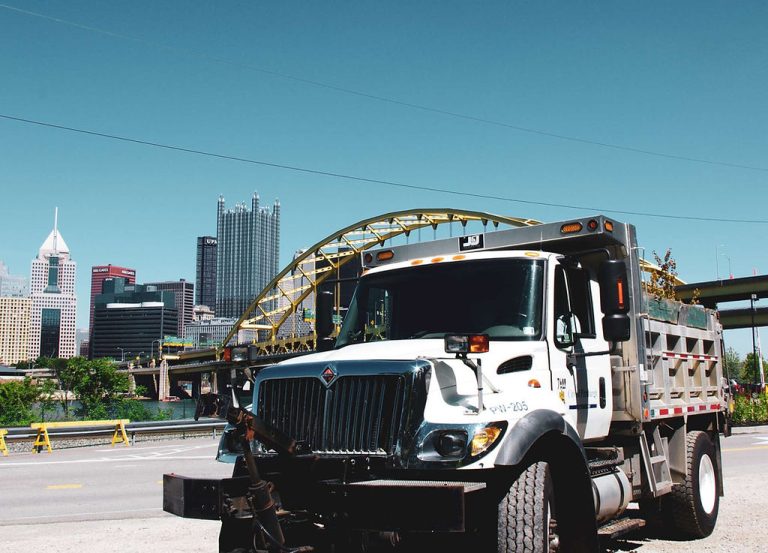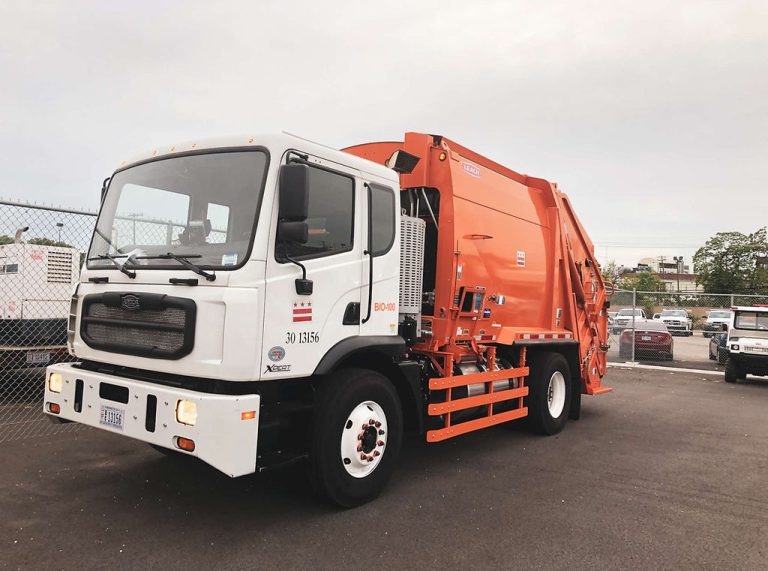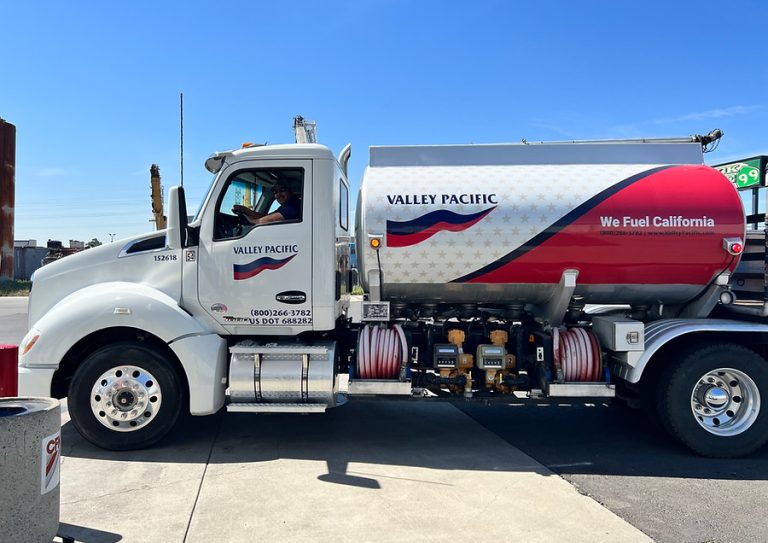Biodiesel improving air quality in Chicago parks

Pilot B100 program cuts carbon emissions from refuse vehicles by 84 percent
CHICAGO—As Chicago residents begin to resume outdoor activities, they can expect to breathe a little easier. That’s because the Chicago Park District (CPD) is working to improve air quality by fueling park refuse haulers with 100 percent biodiesel (B100).
It’s all part of a pilot program in partnership with the Illinois Soybean Association (ISA) checkoff program and the American Lung Association (ALA), aimed at reduced vehicle carbon emissions and more sustainable operations. As the B100 pilot program enters its second year, CPD is celebrating improved air quality and emission reductions equivalent to planting 419 trees in Chicago parks annually.
The refuse vehicles collect trash on Chicago’s lakefront and in nearby city parks, areas where many people go to enjoy fresh air. Refuse haulers typically travel at low speeds and require frequent stops, creating potential for increased soot and emissions.
“Through this B100 project, we are seeing unprecedented reductions in carbon emissions, supporting a healthier and more sustainable environment for the people of Chicago,” says Mike Dimitroff with the Chicago Park District Department of Natural Resources.
“You would be hard pressed to find a more sustainable option for our refuse trucks than B100 biodiesel,” Dimitroff says. “Our B100 is made from recycled cooking oil, which comes from soybeans grown by Midwestern farmers. Since the fuel is produced in-state we are really closing the loop on local renewable energy and boosting the local economy.”
The Park District’s B100 program reduces greenhouse gas emissions and particulates by 84 percent compared to standard, low sulfur diesel fuel. This huge reduction is based on a lifecycle analysis by the biodiesel manufacturer, Renewable Energy Group (REG). REG conducted the analysis based on the CA-GREET model, which accounts for the process of recycling cooking oil from Chicago restaurants to make B100, as well as transporting the finished fuel back to Chicago from the REG plant in Seneca, Illinois. Darling Ingredients partners with the Park District to provide the reclaimed cooking oil as feedstock for processing into biodiesel at REG.
The B100 pilot project began in early 2019, when CPD fitted two refuse haulers with fuel systems from Optimus Technologies® that allow the vehicles to start on diesel fuel and then automatically switch to 100 percent biodiesel after warming up.
In the pilot project’s first year, participating trucks logged 12,000 miles and 2,690 hours of operation, generating significant data on engine performance as well as carbon emissions.
“Many municipalities have set goals to reduce their carbon footprint by 50 percent or more by 2050,” says Dimitroff. “This pilot program demonstrates how biodiesel can be a pathway to meeting carbon reduction targets and sets the stage for other park equipment to run on either higher biodiesel blends or B100.”
CPD is a member of the B20 Club, a partnership between ISA and ALA that recognizes Illinois-based fleets committed to operating with biodiesel blends of 20 percent or higher. In addition to participating in the B100 pilot project, CPD uses biodiesel blends as high as 50 percent in a variety of equipment ranging from lawnmowers to log loader trucks. In April, CPD partnered with ISA to produce hand sanitizer using glycerin, which is a byproduct of biodiesel production.
“The Chicago Park District has been recognized and awarded as a leader in park and recreation management,” said General Superintendent Michael Kelly. “Our biodiesel program, along with many of our Department of Natural Resources initiatives, demonstrate the importance of our organization leading with our sustainability efforts. Through our increased use of biodiesel, the Park District is taking advantage of a practical and immediately useable alternative fuel that is shown to reduce emissions and will provide cleaner air for a healthier Chicago.”
The ISA checkoff program supports the CPD pilot program and other biodiesel projects in Chicago and elsewhere in Illinois. Beyond improving air quality and reducing harmful emissions, biodiesel provides additional market opportunities for soybean farmers in Illinois.
“Partnering with the American Lung Association and the Chicago Park District to pilot the use of B100 year-round is a huge step forward for the environment and Illinois,” says Doug Schroeder, ISA board chairman. “Our investment in this program and biodiesel research bolsters Illinois soybean production and contributes to sustainability in communities where biodiesel is used.”
The Illinois Soybean Association (ISA) checkoff and membership programs represent more than 43,000 soybean growers in Illinois. The checkoff funds market development, soybean innovation and profitability efforts, issues analysis, communications and education. Membership and advocacy efforts support Illinois soybean farmer interests in local areas, Springfield and Washington, D.C., through the Illinois Soybean Growers. ISA programs are designed to ensure Illinois soy is the highest quality, most dependable, sustainable and competitive in the marketplace. For more information, visit the website www.ilsoy.org.
###
For more information, contact:
Rachel Peabody
(309) 808-3617
(217) 825-7654

